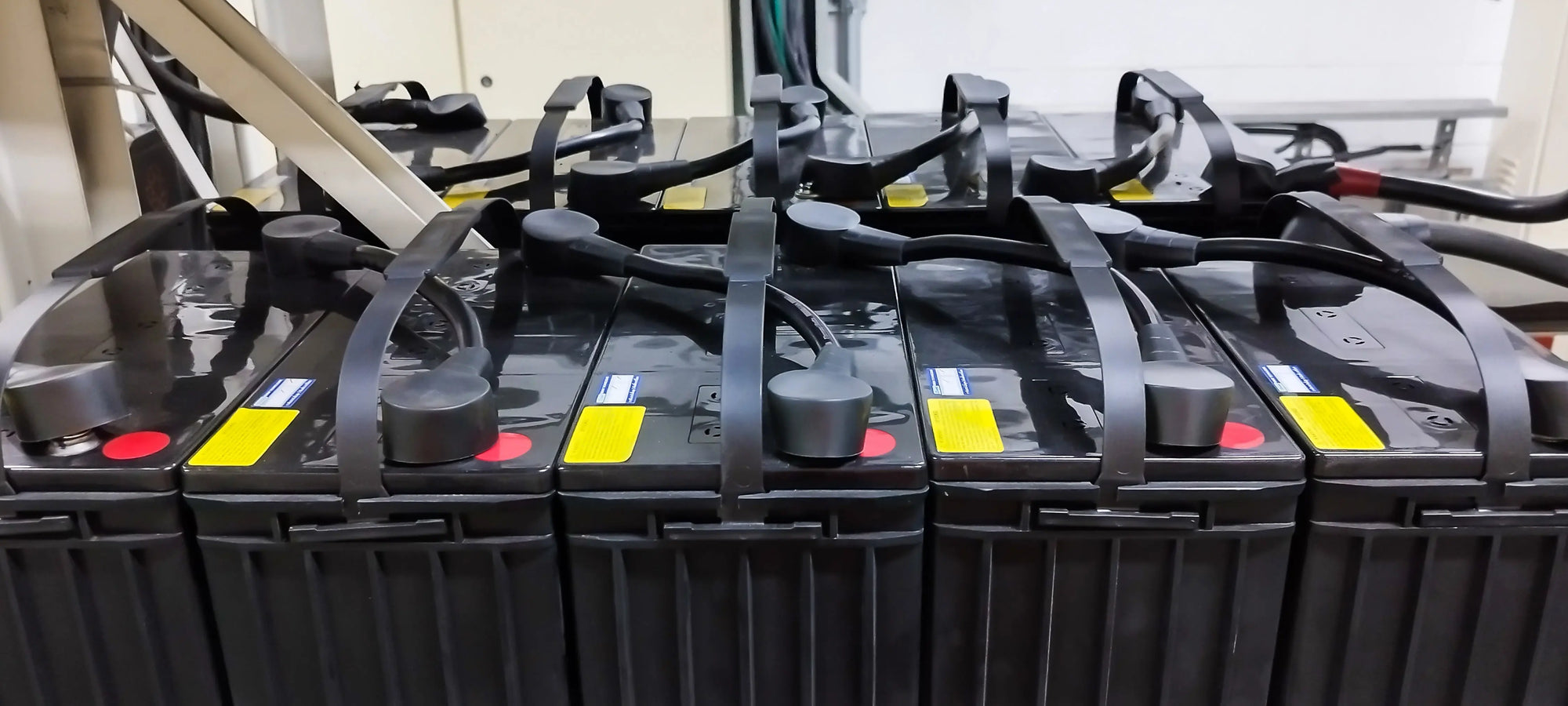Storing lithium marine batteries correctly during the off-season is key to ensuring they perform well when you're back on the water. When these batteries are maintained properly, they offer extended longevity and reliable power for your maritime adventures. While you may not be using your boat or watercraft in colder months or whenever you decide to store it away, it's essential to treat these batteries with care to keep them in optimal condition.
This article will provide you with easy and practical tips for taking care of your lithium-ion batteries. You'll find the best approaches to preparing your batteries for storage, options for maintaining them without too much trouble, and even advice on handling them safely.
Preparing Lithium Marine Batteries for Storage
Before storing your lithium marine batteries, you need to make sure they're in top shape. Taking a few precautionary steps will help you avoid headaches later on:
- Clean the Batteries and Terminals: Remove any dirt or corrosive build-up that may have accumulated. Use a cloth to wipe down surfaces and ensure the terminals are free from any residue. This helps prevent performance issues and prepares the battery for storage.
- Inspect for Damage: Check for cracks, bulges, or signs of leakage. If you notice any issues, it might be best to repair or replace them. This ensures safety and prevents further damage in storage.
- Fully Charge Before Storing: Batteries should be fully charged to maintain their health while not in use. Charge them to 100% before putting them away to prevent loss of capacity and keep them ready for when you need them.
By following these steps, your batteries will be well-prepared for storage, offering peace of mind during the off-season. Proper preparation makes sure your batteries are fit for purpose when you're ready to enjoy the water again.
Ideal Storage Conditions
Finding the right spot to store your lithium marine batteries is important for keeping them in good shape. Batteries thrive in a space that is cool and dry. This kind of environment helps prevent any unwanted build-up of moisture which could lead to corrosion or other damage.
It's advisable to aim for a spot with a steady temperature, steering clear of areas that are too hot or too cold. Ideally, temperatures should be mild, neither freezing nor scorching. Extreme temperatures can affect the battery's chemistry, leading to reduced performance or even damage over time.
Avoiding direct sunlight is also crucial. Sunlight can heat the battery unevenly, causing parts of it to become overly warm. This could lead to performance issues and shorten the battery's lifespan. By keeping it in a shaded area, you can maintain the battery's condition for when it's time to hit the water again.
Battery Maintenance During Off-Season
Maintaining your batteries while they’re in storage doesn’t have to be a tedious task. Regularly checking them now and then can help you spot issues before they become bigger problems. Here's a simple checklist to help keep your batteries in top condition during downtime:
- Check the Charge Levels: Once a month, take a look at the charge status of your batteries. Keeping the charge above the halfway point prevents depleting its power and keeps it ready to go.
- Perform Basic Maintenance Checks: Inspect the battery for any new signs of wear and tear. Tighten any loose connections you might notice, and ensure the terminals are still clean.
- Use a Maintenance Charger: Plugging into a maintenance charger occasionally keeps your battery at optimal charge levels without overcharging. This tool is handy for preserving the battery’s health over long storage periods.
By incorporating these simple steps, you’re making sure the batteries remain healthy and ready for future use, reducing the likelihood of unexpected hiccups.
Safety Precautions
Safety always comes first, especially with devices like lithium batteries. Handling them correctly can prevent a lot of mishaps. Here are some pointers to keep things safe:
- Always handle them gently to avoid accidents. Dropping a battery can cause damage internally and externally, which might not be visible at first glance.
- Store batteries away from flammable materials. It's a good habit to keep everything tidy and reduce potential fire hazards.
- If you need to dispose of a battery, it's best to follow local guidelines. Many regions have battery recycling programs, which ensure environmentally safe disposal.
Keeping Your Lithium Marine Batteries Ready for Use
Once the off-season ends and you're ready to prepare your watercraft, a few steps will help get everything in working order. Start with a thorough inspection to make sure everything is intact. This is the time to catch any issues before they become troublesome during a fun boat outing.
Check the charge, and if needed, give the batteries a fresh boost to reach full power. Ensuring they are recharged means they’re all set to provide the energy you’ll count on. Following these steps makes sure that when it’s time to enjoy the water, your equipment is as eager as you are.
Power Your Marine Adventures with Confidence
Taking the time to correctly store and maintain your batteries is the best way to ensure they serve you well in every adventure. Proper care during the off-season not only extends their life but also ensures they perform effectively when needed. With these straightforward tips, maintaining your batteries becomes a simple part of your routine, leaving you ready to embrace the open waters without a hitch.
So, go ahead and explore with peace of mind, knowing your lithium marine batteries are up to the task for all your marine needs.
Get ready for a smooth sailing experience by keeping your marine battery needs in check. Learn how to effectively maintain and select the right lithium-ion batteries for marine use with guidance from TITAN® Lithium. Your next adventure awaits with dependable power and peace of mind.


